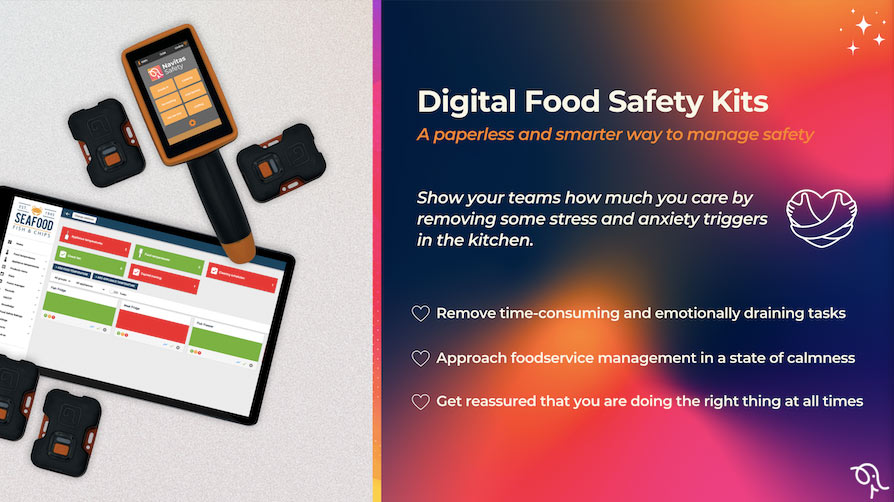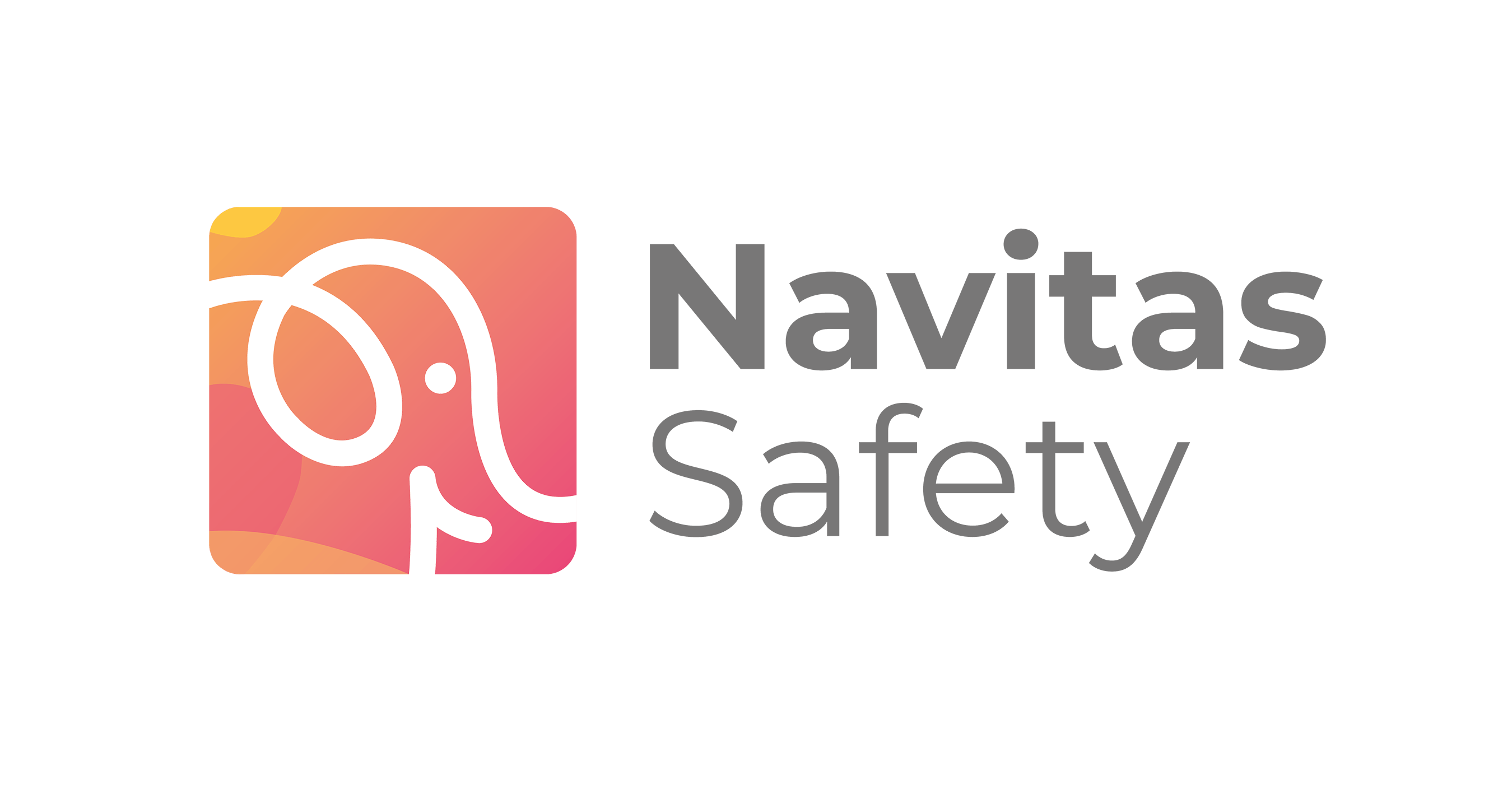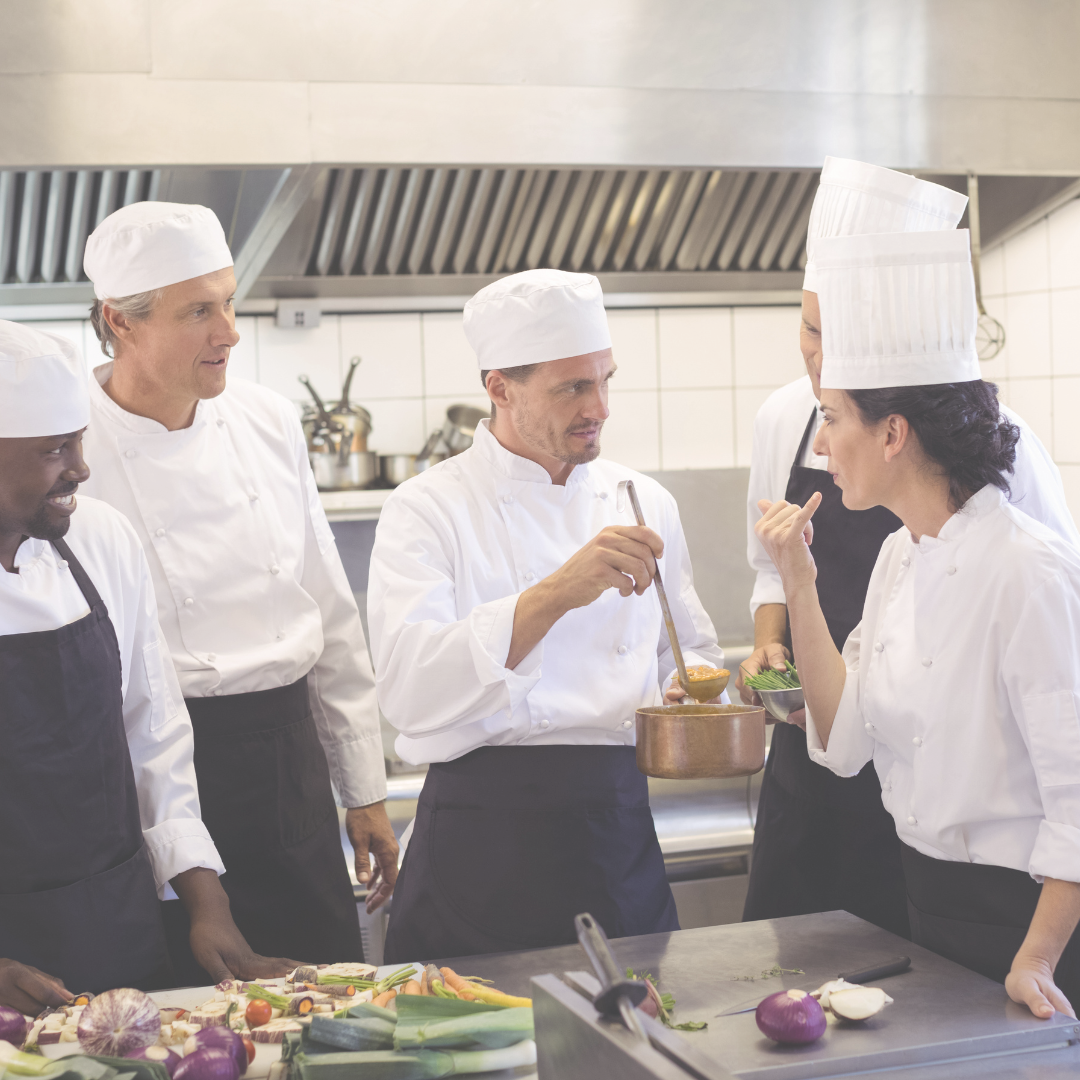Today is World Mental Health Day. Mental health includes stress, anxiety, depression, PTSD, phobias, bipolar disorders and more. Unfortunately many people suffer from it daily while some aren’t aware of it. What’s more, people with mental health issues are often stigmatised, making them feel even more vulnerable. According to Mind 1 in 4 people experience a mental health problem each year in England and 1 in 6 commonly report anxiety or depression. So, it’s important to talk about it.
The typical stress and anxiety factors in the hospitality industry
Inspection anxiety and never feeling prepared enough
A classic to our industry is the looming anxiety about inspection and the fear of shutting down with feelings of never being prepared enough. As the average fine for food hygiene and health & safety breaches keeps increasing (+35% in 2020-2021!) and new laws emerge (e.g. Natasha’s Law, calorie labelling), it’s safe to say that teams can quickly feel overwhelmed.
Loss of passion and work vs. personal life imbalances
Boundaries are blurred and many chefs and wait staff feel a loss of passion. There’s less time to chat with customers and to work on their very own culinary passions. Often there’s just too much going on and balancing personal and professional lives becomes difficult.
Staff shortages and financial stress
From staffing shortages to ever-increasing customer expectations through financial and budget anxiety, the pressure is real. This generally tense context adds up to hospitality teams’ mental burden. While many people have to cover for others, owners and managers face financial anxiety with an aggravating cost of living crisis. This can lead to feelings of helplessness and fear of failure.
Some key data on mental health in hospitality
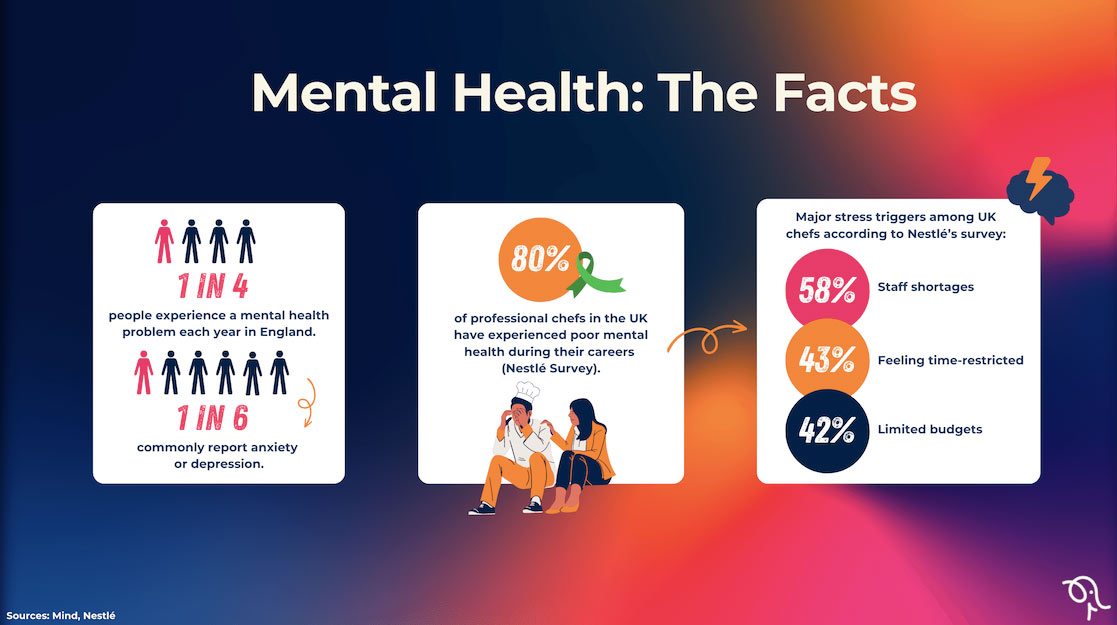
According to Nestlé’s 2019 survey among UK chefs, different stress and anxiety trigger factors were highlighted. Staff shortages was the most common answer (58%), followed by feeling time-restricted (43%) and limited budgets (42%).
So we’ve had a quick chat with two of our lovely partners to find out more about their own stress triggers. Calum Richardson, Chef Director at The Bay Fish and Chips, shares with us his insights on stress triggers from working in hospitality:
“The factors triggering stress and anxiety at work change all the time. This has been specifically true in the past two years. Rude customers are a tough emotional burden that can affect the wellbeing of our staff who shouldn't have to put up with such abuse from people."
"At the moment anxiety is triggered by many factors and we have to take it all in: energy crisis, rising cost of our products, staffing issues etc. And all of these lead to even more pressure on daily decision-making: What is the right thing to do?”
While everyone faces different mental health challenges every day, no foodservice business is exempt. We also talked with Richard Plummer, Commercial Catering Services Manager for 3 campuses and 22,000+ students and staff at Leicester College.
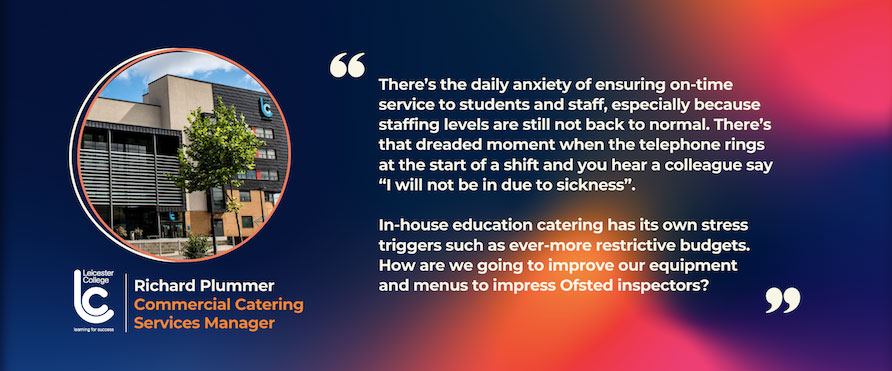
Tips to make hospitality businesses healthier workplaces 🧡
Calum Richardson shares some best practices they have implemented at The Bay for the wellbeing of their lovely and vibrant team.
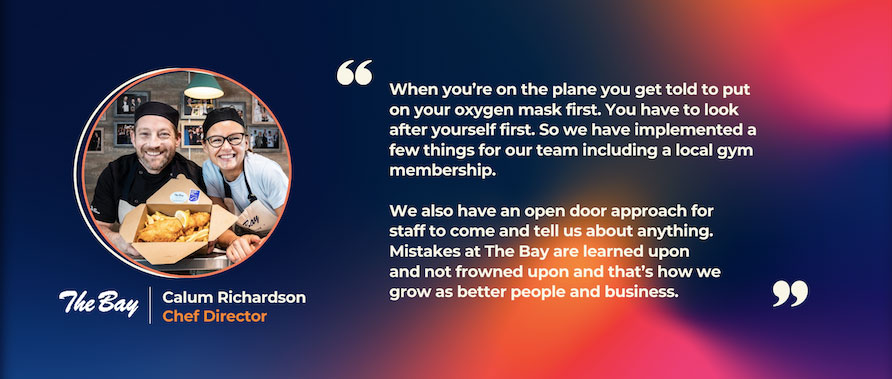
The Bay isn’t the only one to have implemented some steps to make the workplace healthier. Richard Plummer explains how they’re doing it at Leicester College.
“We have a new and dedicated Staff Wellbeing Officer which is helpful and the College also runs various wellbeing events throughout the year to raise awareness. This includes yoga every month, mindfulness practices and we even have a monthly wellbeing newsletter shared within the team.”
Modernising kitchen technology to relieve some stress for better mental health in hospitality
Navitas Safety fully takes on the mission of making the lives of hospitality teams easier and less burdensome. Let’s discuss how our digital food safety kits play a part in improving the wellbeing and mental health of hospitality staff.
Removing time-consuming, emotionally draining and robotic tasks
We truly believe that technology can be a transformative tool to healthier workplaces. Digital food probes and automated temperature monitoring sensors remove the robotic and burdensome task of manually recording data. It’s all automatically done and logged into a digital system. In other words, the ‘dirty work’ is delegated to technology. This empowers hospitality professionals to go back to what they love, making their daily job lighter and more human. It brings back a sense of ‘feel-good’ at work with less stress.
🧠 Key mental benefits: less robotic tasks, staff feeling less drained and more confident to take on the day and more time to focus on their passion.
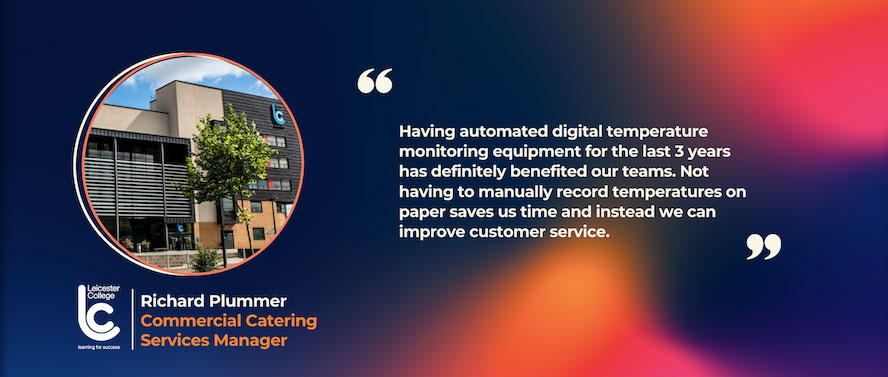
Approaching foodservice management in a state of calmness
The team designed our smart food safety software to make safety as simple as possible. Staff can access real-time data from anywhere and at any time with all documents and records digitally stored. Also, a traffic light system makes prioritisation easy with urgent tasks clearly visible within a glance. This allows managers to feel ‘on top of things’ and tackle food safety with more calmness every day. Our kits aim at making teams feel inspection ready 24/7 with the peace of mind that you are doing everything right. Finally, our food probes have built-in safety guidelines, providing confidence for newer recruits and erasing any fear of making a mistake.
🧠 Key mental benefits: feeling less helpless, more reassurance that you are doing the right thing, no more inspection-related or safety mistake anxiety.
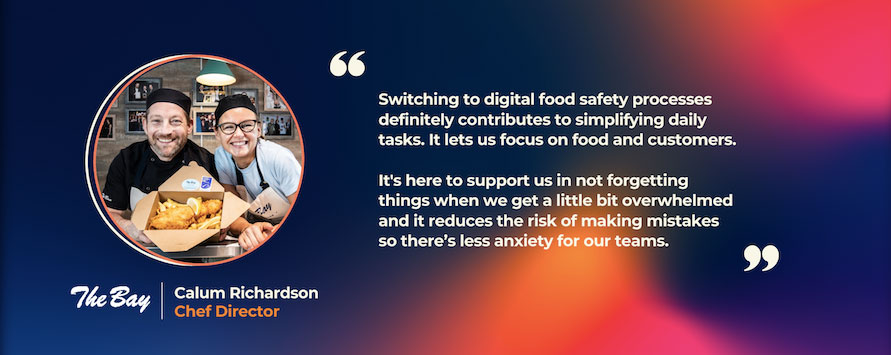
Mental health in hospitality: A word to wrap up!
We can’t say this is enough but we hope to play a part in removing a big chunk of the mental burdens that affect many hospitality teams. There are many ways you can improve your mental health and we would recommend you have a look at The Burnt Chef Project. Also, find out more about our digital food safety kits and how they improve mental health in hospitality.
